How stand-up paddle boarding changed my life (and how to get on board)
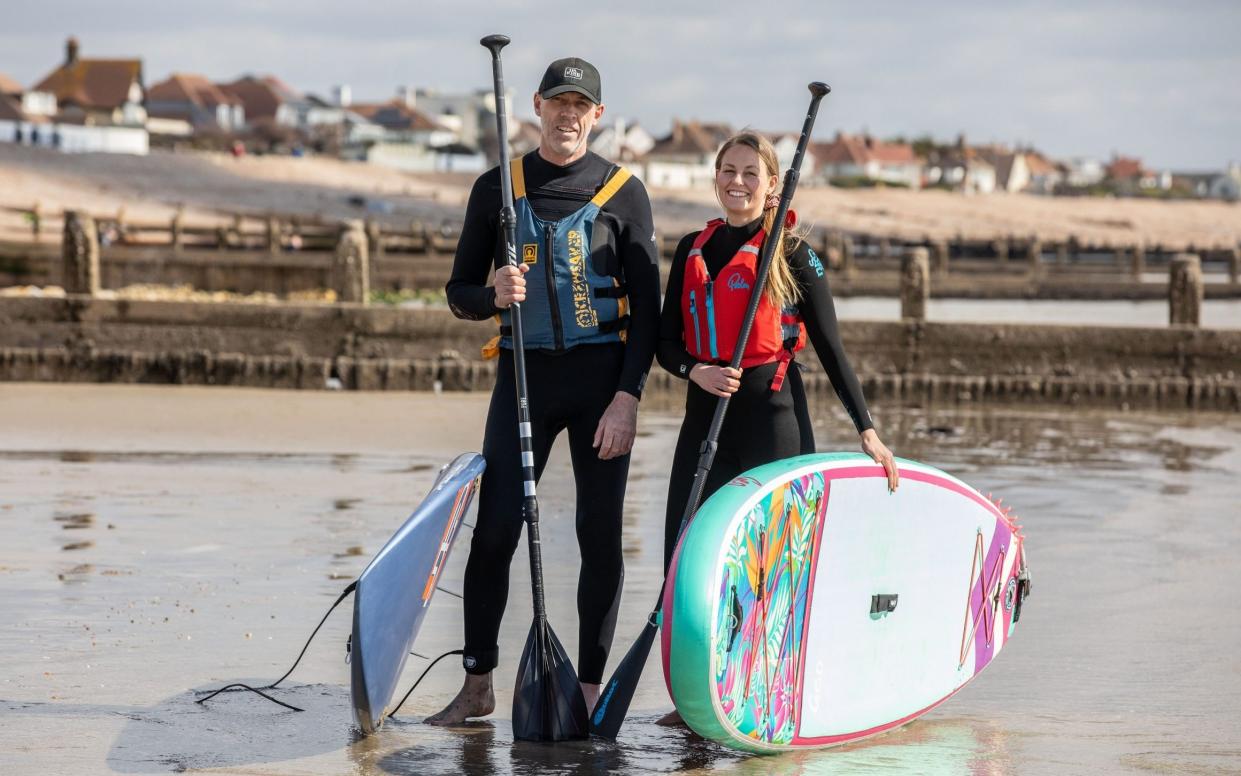
There’s a saying: paddle more, worry less. A stand-up paddle board gives me a route into feeling alive in the present moment, free of expectation, among like-minded, adventurously spirited people. Invariably, it gives me a new perspective, appreciation for the natural world and respect for the inevitable turning of the tide, as well as a temporary escape from technology. After every paddle, I feel renewed.
Just over a year ago, on a Saturday afternoon in January 2020, I lay upstairs in my mother’s cottage by the sea in Sussex, listening to the screech of seagulls. I felt frazzled. I couldn’t keep up with the pace of my life in London – but I had no idea how the coming year would alter everything.
Instead of catching the train to Norfolk to visit my grandmother in her care home as planned, I’d taken a shorter train journey to retreat to the cottage. Little did I know an uncontrollable force for change was rippling its way to the UK, or of the unbearable sadness to come. I would never see my grandmother in person again.
February passed in a cold snap. Worried murmurings about the pandemic loomed, and suddenly I found myself heading back to Sussex from Clapham Junction once again, in disbelief that there could be such a thing as a national “lockdown” in this country. I arrived with my laptop and a change of clothes, and then never left.
I’ve always been drawn to water. I was grateful to be in walking distance of the sea as spring rolled into a hot summer of grief. I had stunning south coast sunsets, and a tan, but I felt lost and anxious. The thing that kept me going was the chance to go paddleboarding more often. On sandy beaches, I met new, salty-haired friends, with bare feet, who also loved the water and the sense of release and escapism that life in coastal communities has to offer. I joined the local sailing club with one of them, Hannah, who loves kayak surfing and canoeing as much as I love paddleboarding (we mostly learnt how to capsize), but I felt isolated and uncertain about the future.
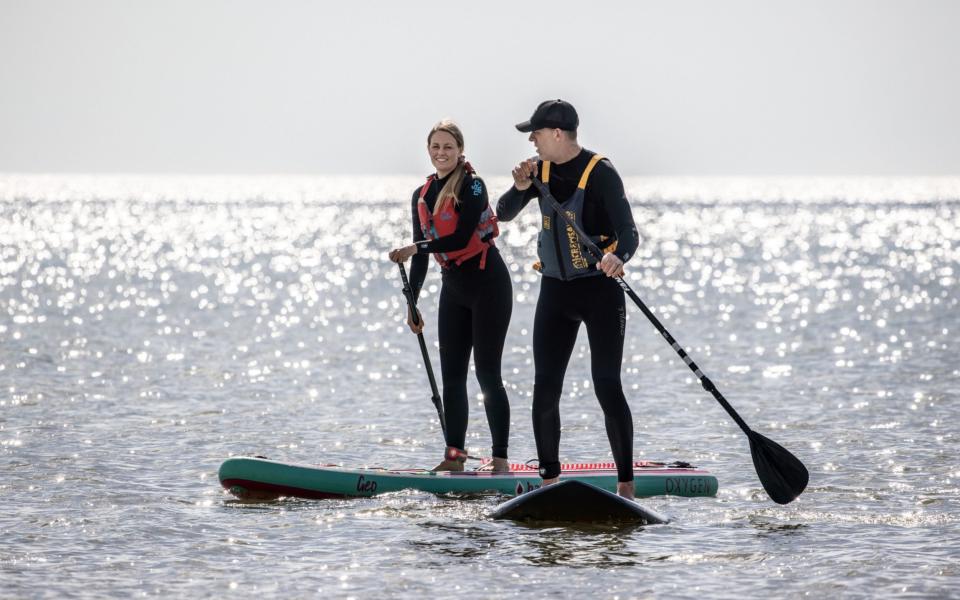
I met Jon one day in August in the sailing dinghy park as I pumped up my inflatable board to head out to a glassy, gin-clear sea. Somehow, it was suggested we paddle together a few seaside towns along for breakfast at a café the coming Sunday. On what would have been my grandmother’s 91st birthday, were it not for Covid-19, by the time we’d had our coffees, we knew each other’s life stories. Conversation flows freely on the water when you paddle or kayak with one other person.
Both of us, it turned out, were drawn to paddling due to its positive effect on our mental well-being, as a means to find calm and to challenge ourselves. As we paddled back, a thunderstorm broke. It threatened to throw us off balance, but the clouds made way for bright sunshine and the water stilled as we approached the beach. On our second (socially distant) outing, we set off on a river safari along the Arun, with a gas stove for a fry-up on the bank.
While Jon used to windsurf, now all he wants to do is paddle surf (riding waves on a paddleboard as if it were a surfboard, inspired by paddle surf forerunners like Laird Hamilton and Dave Kalama) and attempt SUP (stand-up paddleboard) hydrofoiling. SUP hydrofoiling enables the rider to “fly” above the surface – instead of a fin, hydrofoil boards have a long, underwater wing that lifts the board out of the water. His daughter Katie, 19, is taking a BTEC in outdoor education and watersports at Hove Lagoon with Newman College, including windsurfing, wakeboarding, sailing, paddleboarding and more.
As for me, I’d paddled on flat water only since 2015 – first while working as an au pair for a German family in Bavaria, Sound of Music-style, living by the Ammersee, a glacier water lake. I knew I’d discovered something I could get a lot out of. Back in the UK, I enlisted Waterskills Academy-accredited instructors Tony and Gemma Caslin of TJ Boardhire in Sussex (tjboardhire.co. uk) to teach me how to paddle safely, convinced my siblings to join me on group paddling tours, and attended social paddle and pint events along the Chichester Canal.
Over the years, I’ve tried SUP yoga (a feat of balance) in the wild swimming lake at Wilderness festival in Oxfordshire, and taken part in the Red Dragon World Championships paddleboarding event at Lake Fuschl near Salzburg in Austria, racing around marker buoys on giant boards designed for four people.
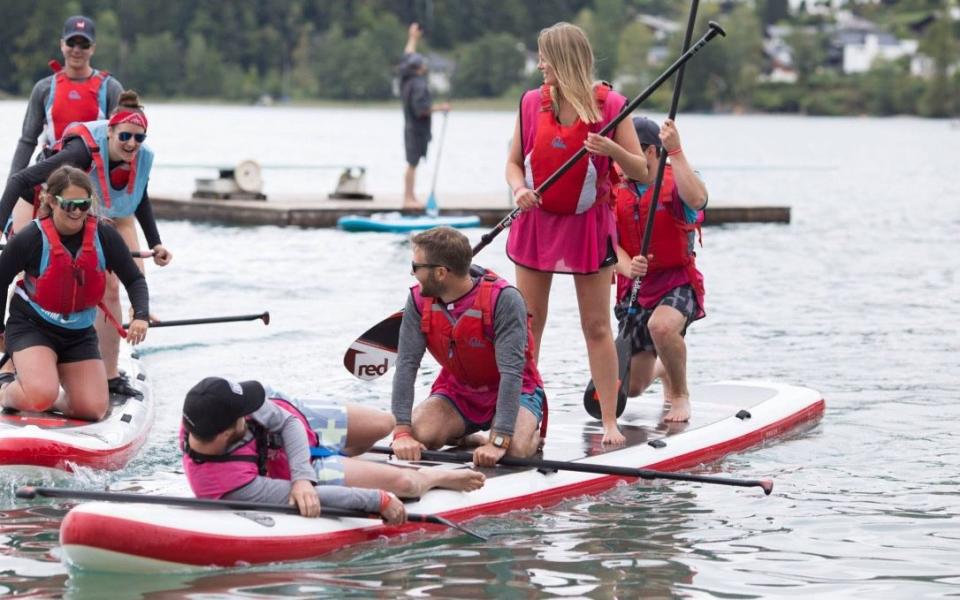
Paddling with Jon, I’ve put my physical ability and mindset to the test, most notably trying (and failing) to ride 6ft waves on paddleboards at Saunton Sands, the surfing mecca in Devon. When the country opens up, we hope to spend a week at Gwithian beach in Cornwall on a paddle surfing course with the Brighton Kitesurf and SUP Academy.
Paddle or SUP surfing is a burgeoning alternative to regular surfing, on solid, specifically designed, more manoeuvrable wave boards – shorter and slimmer than all-round paddleboards, with sharper rails and less volume. Standing up out of the water, it’s warmer, and you have a better view of the sets of waves rolling in, with the paddle to brace yourself.
One thing I love about paddleboarding is how versatile a pursuit it is. Beginners can tour flat water (rivers, lakes, lochs, canals) with a picnic in tow, but also experience the childlike thrill of surfing a wave.
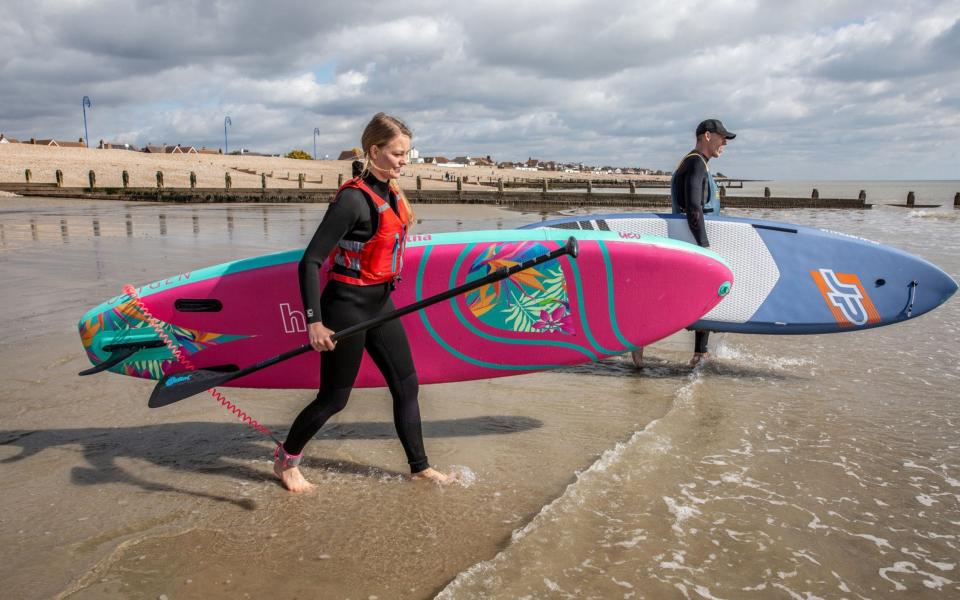
It’s a physical, full-body workout which builds core strength and improves balance, but paddling rewards people in different ways, depending on what they want to get out of it. My mood soars seeing so many people taking to the water in Britain, enjoying its waterscapes and wildlife.
It’s changed my life to such a degree that, now, I want to share it with other people and explore more of the UK. Later this month, Jon and I are taking our first step towards training as paddling instructors with the Waterskills Academy ourselves, and seeing where it leads us. Perhaps we’ll see you on the water one day, too.
Beginner-friendly paddles in the UK
The best way to get out on the water is to learn with an accredited instructor or surf school
Norfolk Outdoor Adventures in Hickling (norfolkoutdooradventures.co.uk)
SUP Bristol (supbristol.com)
Psyched Paddleboarding in Anglesey (psychedpaddleboarding.com)
Kent Surf School in Broadstairs (kentsurfschool.co.uk)
How to get going
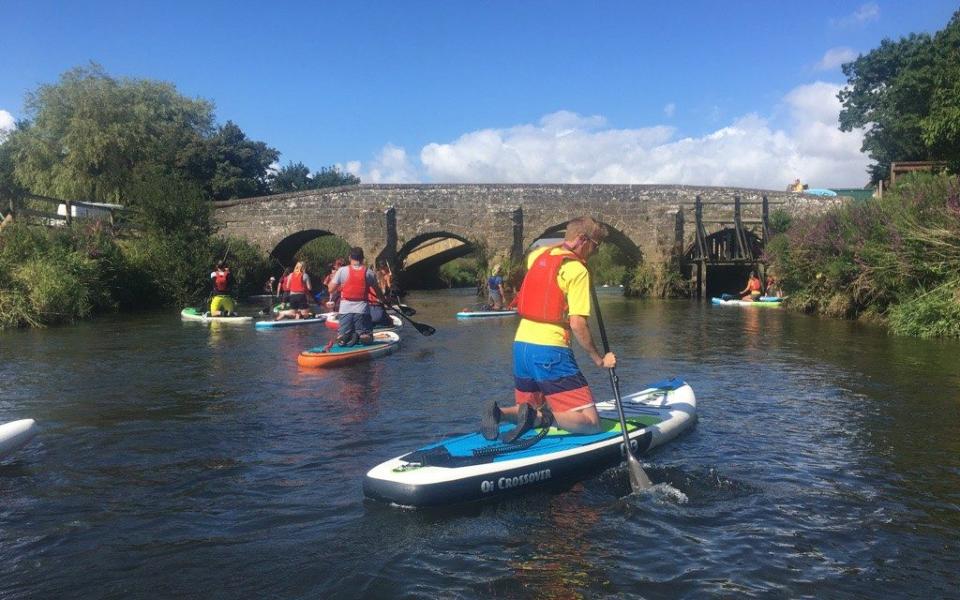
Recreational Water Skills Academy membership is £30, which includes public and civil liability insurance and a licence to paddle on waterways managed by the Canal and Rivers Trust. The Waterskills Academy is a certified B-corp organisation; 1 per cent of revenue goes to NGOs including Save our Rivers (saveourrivers.org) and Surfers Against Sewage (sas.org.uk).
Their iSUP Smart Course is an online theory course aimed at people who’ve never paddled before, ahead of their first time on the water – a grounding in safety, equipment, planning, launch and recovery, navigation, and rescues (£45, waterskillsacademy.com).
Where to launch
Via PaddlePoints, an online tool, digital map and paddling community, you can find new places to paddle, contribute route suggestions, and find up-todate information regarding river levels, hazards, weirs and rapids; gopaddling.info/paddlepoints
Some waterways require licences. In England, a licence is required to paddle on waterways maintained by the Canal and River Trust. In Scotland, there’s a “right to roam” over land and water. Visit canoewales.com/covid-19 for for the latest guidance on paddling in Wales.
Inflatable boards vs. hard boards
Inflatable, affordable boards have made paddling a more accessible pastime. They’re more stable, lighter, easier to store and softer should you fall. For a durable all-rounder inflatable board for beginners and recreational paddlers, seek out safe and reputable quality brands such as Hatha, Red Paddle Co, Fanatic or Quroc.
While more difficult to transport and store, hard boards are superior in terms of performance, suited to racing and touring. Hard boards glide faster, with speed and manoeuvrability, and handle windier conditions better. Their shapes tend to be tailored to specific sports – such as stand-up paddleboarding – paddling abilities and rider weights. Do your research: good brands include Naish, Gong, Goya, Starboard and JP.
Pick of the kit
Dryrobe advance long sleeve in camo pink (£150, dryrobe.com)

Every paddleboarder and #vanlifer, it would seem, is in possession of a fleece-lined, windproof dryRobe, which helps you to get active, get warm and get changed in all weathers in the great outdoors. I’m obsessed with the camo print.
Hatha ‘Oxygen’ 10’6 board in navy and yellow (£575, hathaboards.co.uk)
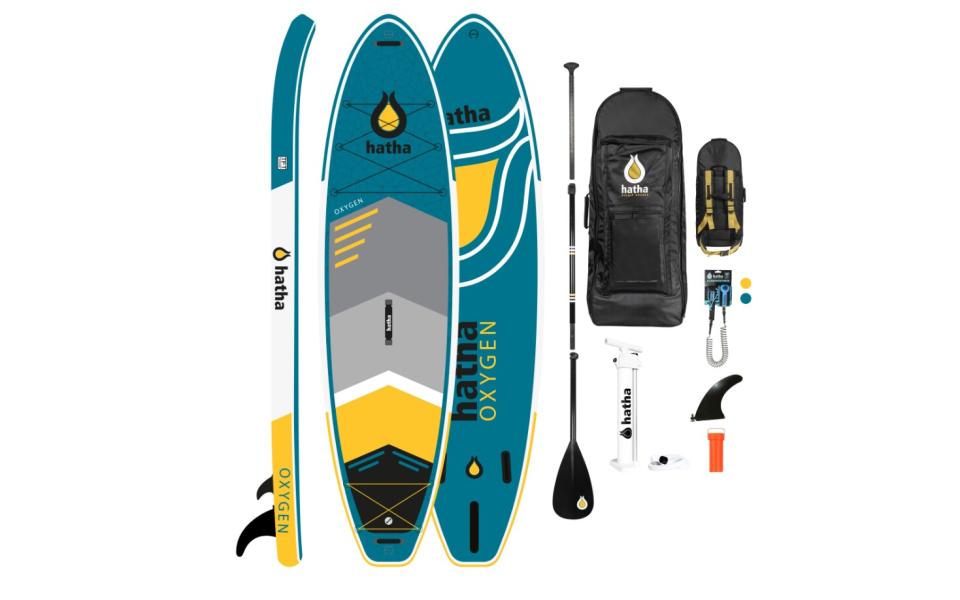
I find the “Oxygen” boards to be light, durable and stable inflatable paddleboards for all-round use, suited to beginners (the tropical geometric print pink board featured in the pictures ealier is the “Oxygen Geo”). With a 3-year warranty, the navy and blue package includes a pump, fin. SUP backpack, heavy duty leash, repair kit and entry level paddle. One board to do it all.
Bamboo Carbon 50 Fanatic paddle (£209.00 – £249.00, 2xs.co.uk)
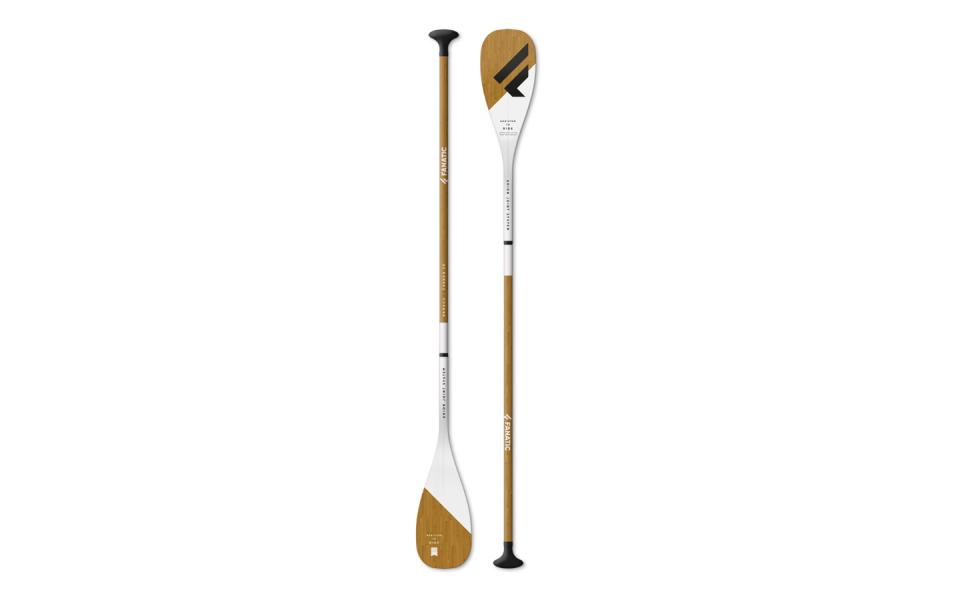
You might want to invest in a lighter-weight carbon or fibre glass paddle, to cut through the water with more ease. Ohio-based Quickblade paddles are among the best in the business (available in the UK from standuppaddleboarding. co.uk, from £329), but expensive. Instead, try Fanatic’s range at fanatic.com.
Red Paddle Co 9’6 compact inflatable board package (£1,299, redpaddleco.com)
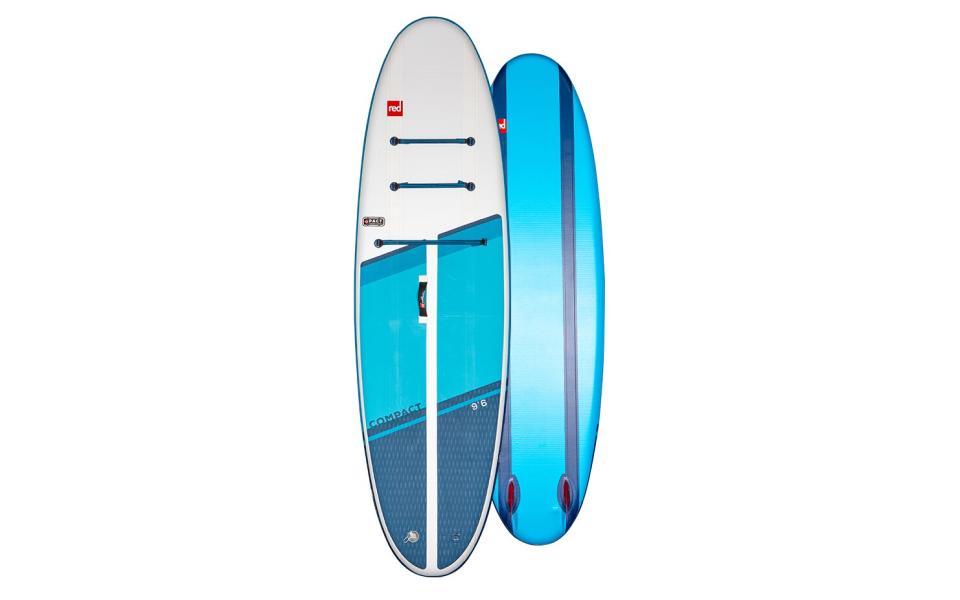
Red’s ingenious compact board folds down to half the size of a conventional inflatable paddleboard. Liberatingly easy to carry around, the package includes a pump, paddle, fins, leash and a portable backpack. Everything you need to paddle.
Billabong “Synergy 3/2mm back zip women's wetsuit (£185, billabong.co.uk)
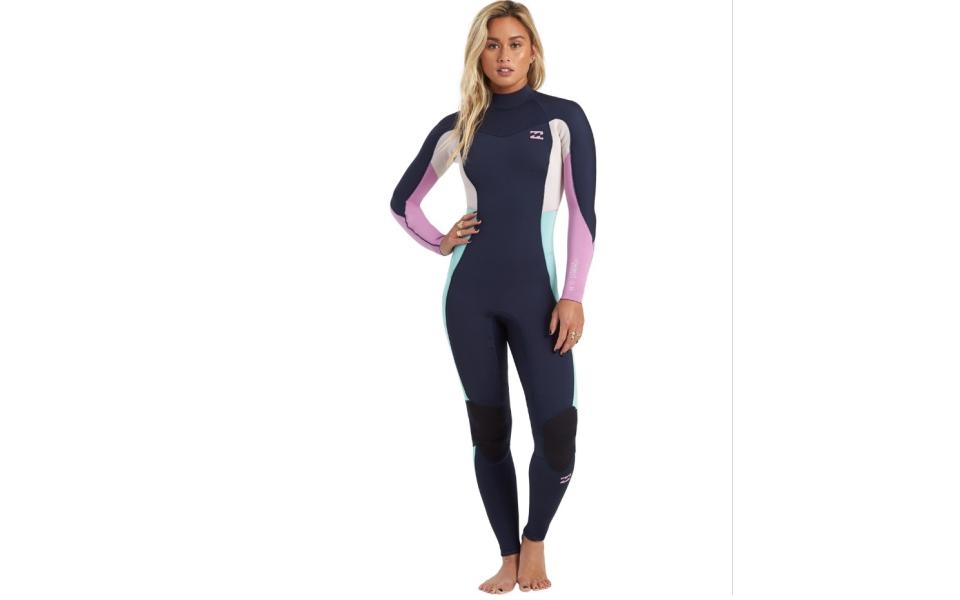
A 3/2mm wetsuit is the ideal thickness for spring adventures in Britain. You can’t go too wrong with Billabong, Roxy Ripcurl, C-Skins, Quiksilver or O’Neill.
Puravida three-piece ear carbon paddle (£200, qurocpaddleboards.co.uk)
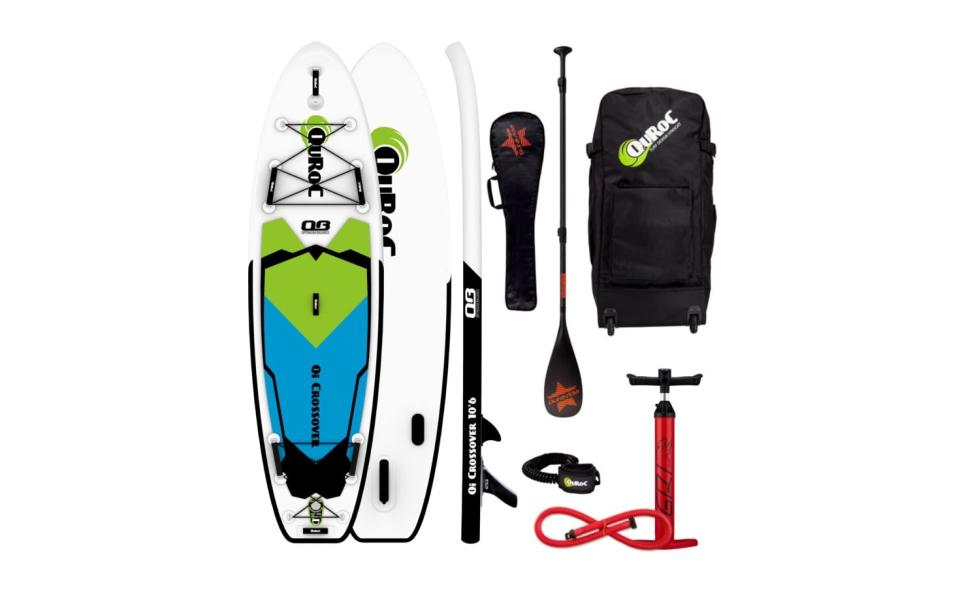
I use a Puravida three-piece carbon paddle (£200), which came included with my Quroc Qi Crossover 10”6 inflatable paddleboard package, which has a paddle, bag, pump, fin and leash (£699, qurocpaddleboards.co.uk). All set.
The best books on paddle sports for beginners
The Paddleboard Bible
The complete guide to stand-up paddleboarding by David Price (£18.99, Bloomsbury)
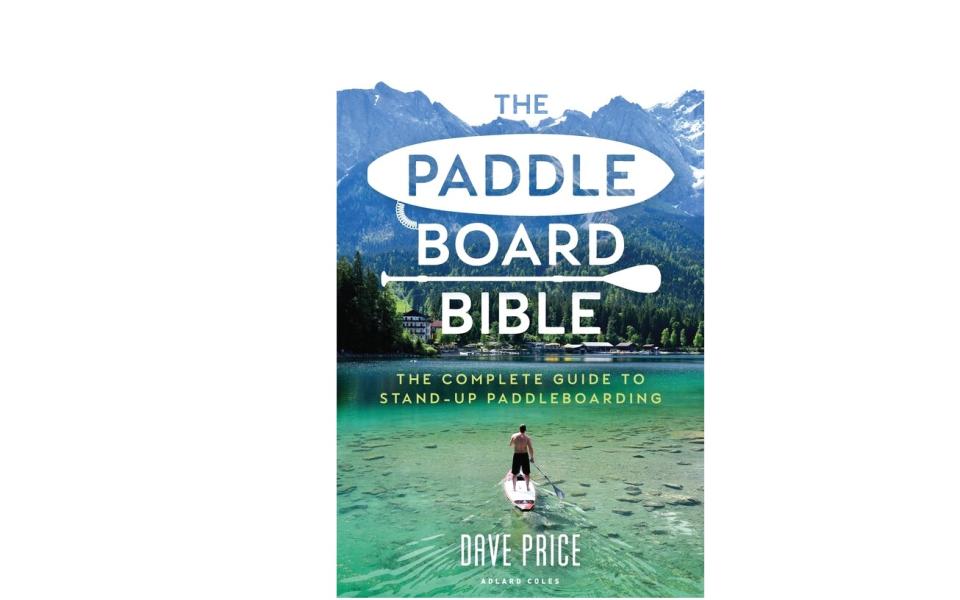
Dave Price is an SUP instructor at Easyriders in Poole, Dorset. His new book covers the basics and know-how to get you started. You’ll be planning adventures with family and friends on the water in no time.
Paddling Britain
50 Best Places to Explore by SUP, Kayak & Canoe by Lizzie Carr (Bradt Travel Guides, £14.99)
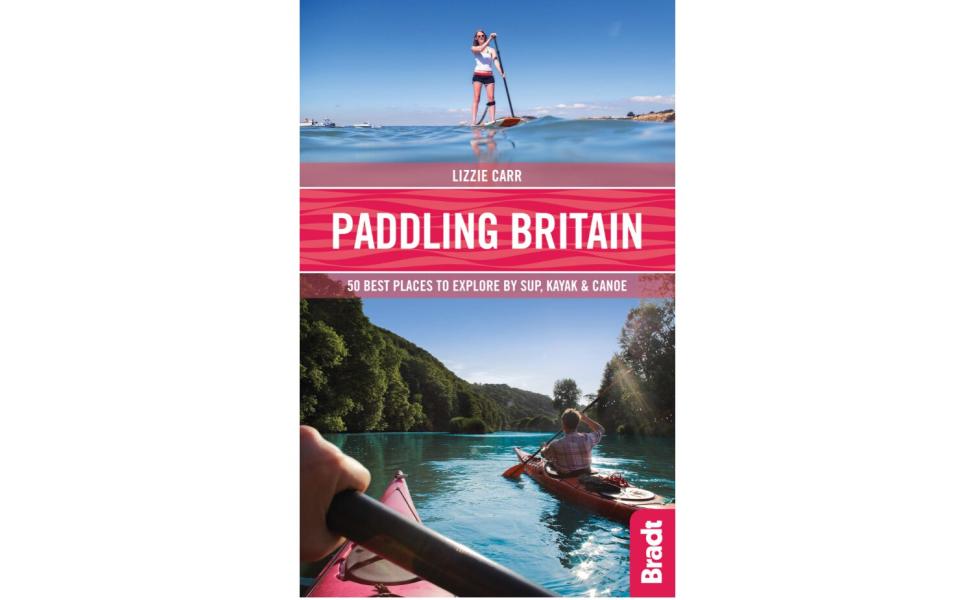
Activist, author and adventurer Lizzie Carr became the first person to paddleboard the entire length of Britain’s waterways in 2016, and the first woman to paddleboard across the Channel in 2017. Her book will inspire you to explore the UK water scene.
Inflatable Kayaking
A beginner’s guide to buying, learning and exploring by Chris Scott (£10.99, Fernhurst Books, out on Tuesday)
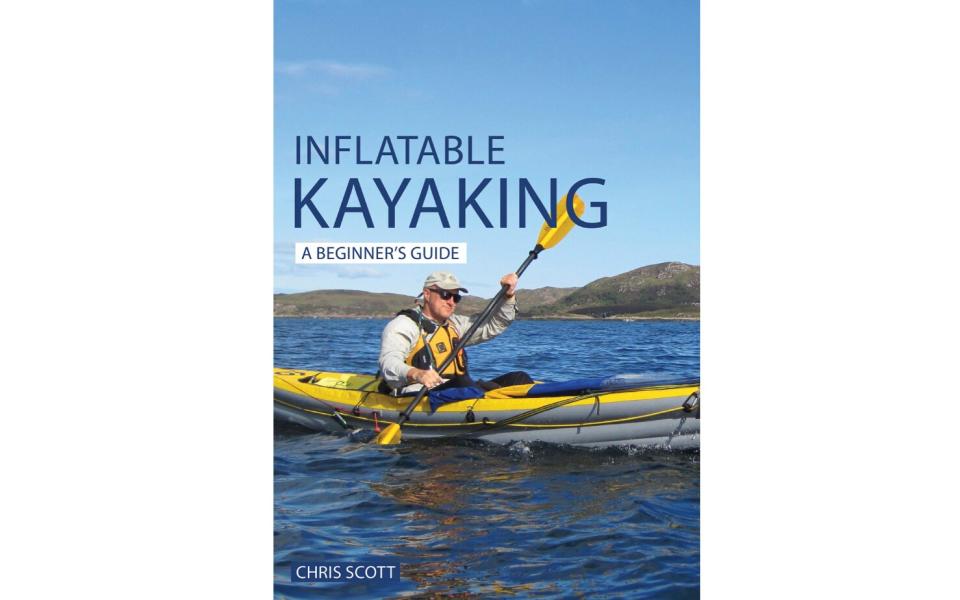
Chris Scott is a worldwide travel and adventure writer and founder of the blog Inflatable Kayaks & Packrafts: adventures with packboats (inflatablekayaksandpackrafts.com).
Ignore the Fear
One Woman’s Paddling Adventure by Fiona Quinn (£10.90, Lemon Publishing)
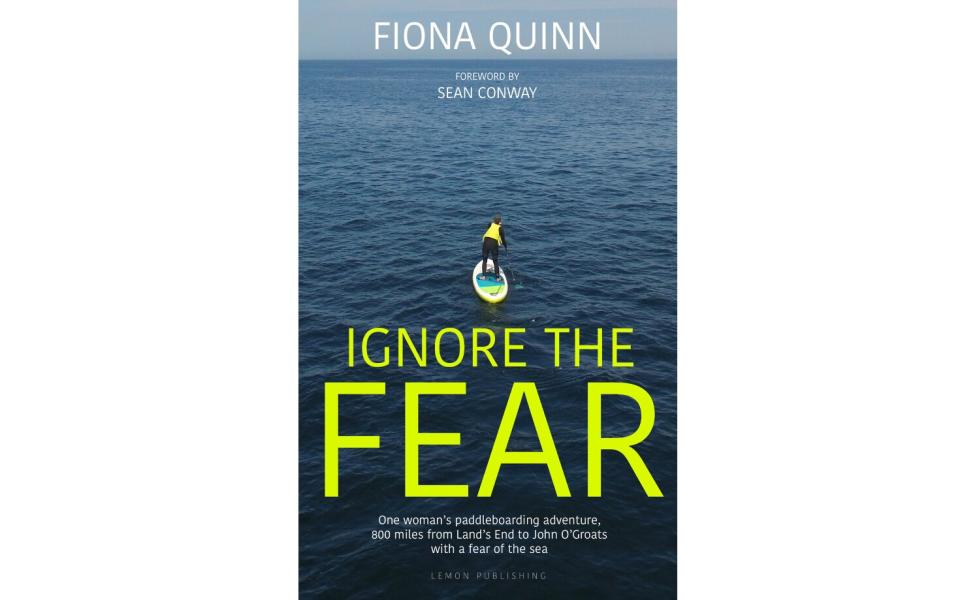
Despite a fear of the sea, Fiona Quinn paddled the west coast of Britain, 800 miles from Land’s End to John O’Groats, as a beginner stand-up paddleboarder in April 2018 – setting three world records.
Follow @paddlingmadeleine_uk on Instagram for adventure and well-being inspiration, anywhere there’s water

